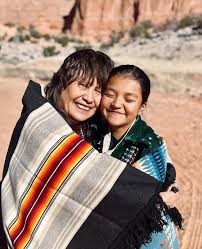- President's Perspective
All Good Gifts
by Fr. Blaise Berg, STD
Fall 2024
As an unmarried man, I do not feel qualified to write much of anything about premenopausal, menopausal or postmenopausal experiences. I have never experienced a menstrual period in my life and I have not had a spouse who has. I did, however, grow up with ten sisters (and one brother). While I was pretty oblivious to what my sisters went through as they entered puberty and as they continued to mature into adulthood, I learned early on that it was not a good idea to ask one my sisters, in the midst of a disagreement (i.e. fight): “Are you having your period?” That question was not met with gratitude. The question just made my sister angrier. Of course, I knew it would. That’s why I asked it.
My confession aside, why would my sister react so angrily to such a question? I suppose she was angry because she would have known that I was asking the question not because I was genuinely concerned about her physical well-being. Rather, she knew that by indiscreetly casting a light on an intimate truth about her body, I was not coming from a place of wonder, but of mockery. That’s what upset her. We live in a culture that purports to support women, but in reality, mocks them. As long as women and men are allowed to abort their children, we are not supporting women. As long as women and men stifle the gift of their physical fruitfulness through pills and other man-made means, we are not supporting women (or men for that matter). A woman’s menstrual cycle is part of God’s design for spouses to bring new life into this world and, with God’s grace, to nurture and form those lives in this world and for the world to come so that heaven be abundantly populated.
Indeed, when a young woman has her period for the first time, rather than make certain she has all the information to stymy her fertility, it should be an occasion for celebration. Recently, I took in a television (streamed) series, when in fact, this celebration took place. The series, called “Dark Winds”, is a murder-mystery show which depicts life on a Navajo reservation in Arizona. One episode portrays a young woman who experiences her first menstrual cycle. The Navajo puberty ceremony called “Kinaalda” is portrayed with detail and attention. While I do not have the space to go into the details of the ceremony, suffice it to say that it is clear that a young Navajo woman’s Kinaalda is an occasion for much joy, as it should be.
What does a woman’s first period have to do with her last which is the main focus of this edition of CANFP News? Once again, the answer lies in the truth that the beauty of the woman’s fertility is all part of God’s design. God created women in the way that He did because He is a God of goodness and reason. It is good that God gave man and woman to each other in marriage in Paradise (Gen 1:27-28.31) and it is reasonable that spouses be given the gift to bear children for a defined period of time so that they could raise their children and yet “live to see their children’s children”. (Nuptial Blessing, Rite of Marriage) “All good gifts around us are sent from heaven above, so thank the Lord, oh thank the Lord for all his love.” (All Good Gifts, Godspell)
About The Author



